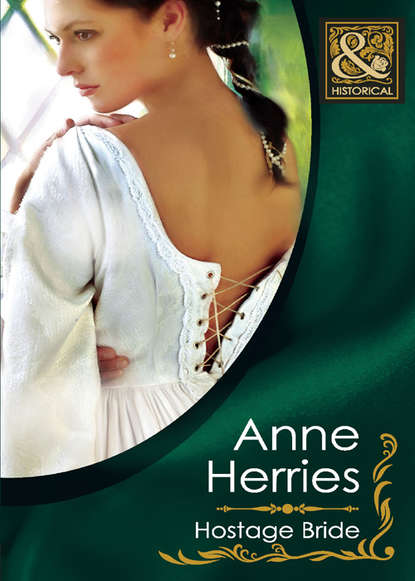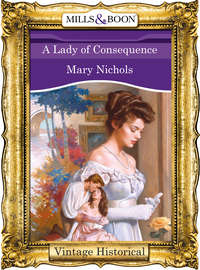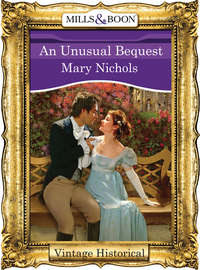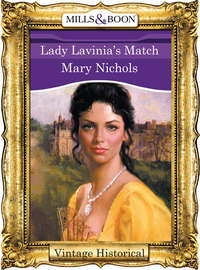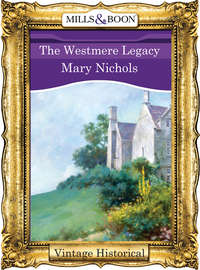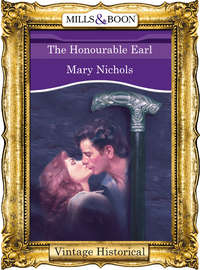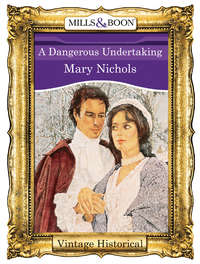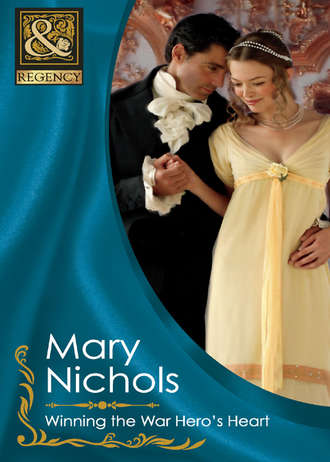
Полная версия
Winning the War Hero's Heart
‘The reason no one was killed was because the Viscount prevented it,’ she retorted. ‘Which you would have known if you had not run away like a coward.’
‘Coward, you call me! I wasn’t the one standing around in disguise waiting to enjoy the fruits of my betrayal. I was up there on the platform for all to see.’
‘Until the militia arrived. It was miraculous how fast you disappeared then.’
‘It was my bounden duty to protect Jason Hardacre from arrest and get him safely away. Thanks to you and the Viscount, he never made his speech and the people of Warburton are the poorer for it.’
‘I doubt that.’ She tried to pass him, but he dodged to prevent her. ‘Let me pass, Mr Blakestone.’
‘When I’ve done with you.’
‘What do you mean?’ She was becoming very alarmed and tried to push past him. He reached out and pinioned her arms to her sides. She tried kicking, but he held her at arm’s length and she could not reach his legs.
‘Struggle all you like,’ he jeered, ‘but hear this. We will not be so foolish as to advertise our next meeting, except by word of mouth, so if the Earl hears of it, we shall know where the blame lies. Your life won’t be worth living.’
‘Stand aside!’ The voice was the Viscount’s as he galloped up, threw himself from his horse and wrenched Blakestone from Helen. He had his crop in his hand and raised it to the man, ready to give him a beating, but Helen grabbed his arm.
‘No, don’t,’ she cried. ‘Let him go. I don’t want violence done on my account.’
Miles lowered his arm, the white heat of his anger slowly subsiding. ‘Get you gone,’ he told Blakestone. ‘And if I ever come across you offering violence to a lady again, it will be the worse for you.’
The man hesitated as if considering whether to stand and fight, but thought better of it and turned on his heel to march down the road, but not before he had uttered one more threat. ‘You must watch your back, Captain. I ain’t forgot you had me flogged and reduced to the ranks. A man don’ forget that in a hurry. Watch your back at all times.’
‘What did he mean by that?’ Helen asked, as the man strode away.
‘I caught him assaulting a Portuguese girl and hauled him off. He was put on a charge and was dealt fifty lashes and had his sergeant’s stripes taken off him.’
She shuddered. ‘I think flogging is barbaric. Surely there is another way to punish wrongdoing in the army?’
‘I don’t hold with flogging either, but it is the only punishment the men understand, and in wartime, under battle conditions, we do not have the facilities for imprisonment. Besides, the men are needed to fight.’
He paused. ‘But that doesn’t explain why he was manhandling you. What was that about?’
‘He thought I had betrayed the meeting to you and that you had told your father, who ordered the militia. He was very angry.’
‘I am sorry to hear that. You have helped him when you should not have done and he repays you with threats. Had I known I would have told him the truth.’
‘He would not have believed you.’
‘No, you are probably right, but be careful in future, Miss Wayland. Do not go out unaccompanied.’
‘Oh, it is nothing but bluster. I doubt he would harm me.’ Now the man had gone she was full of bravado. It would not do to let Viscount Cavenham see how afraid she had been.
‘I am not so sure. Where were you going?’
‘To see Mrs Watson.’
‘A happy coincidence. I was on my way there myself. We will go together.’ He picked up the reins of his horse and walked beside her to the widow’s cottage.
Mrs Watson was put in a fluster when she saw who had accompanied Helen and bowed and kept apologising for her poor home, until Miles smiled to put her at her ease and said he had come to talk to Mr Byers, whom he had spotted working in the garden, but he would enjoy a cup of camomile tea when he came back. And with that he was gone.
Relieved of his presence, Mrs Watson relaxed and bade Helen be seated by the hearth. The little boy was playing on the floor and Helen knelt down to play with him. ‘How are you managing?’ she asked the child’s mother, picking up a crudely carved harlequin on a stick and tickling the boy with it. He chortled happily.
‘Oh, we do well enough. I am thankful I still have my job in the laundry and Jack Byers has put the garden to rights as far as he was able. The Viscount gave him money to buy vegetable seeds in place of those I lost. Jack has sown them and planted new currant bushes for next year, but there will be no fruit this year. The guinea his lordship gave me is all but done and I cannot pay him. He is working for board and lodging.’
‘I expect he thinks it is better than nothing.’
‘Miss Wayland, you didn’t ought to have writ what you did about the Earl. I didn’t know you wrote a newspaper until Jack told me or I wouldn’t have said what I did. It looks as if I were complaining and that weren’t so. We could all be in trouble.’
‘It’s only me that’s in trouble, Mrs Watson. The Earl is determined to close me down.’
‘It don’t do no good to go agin’ him. What d’you do it for any road?’
‘Because someone has to tell the truth and wake everyone up to what’s been going on for generations. My father did it and I carry on in his memory.’
‘And yet you be on good terms with the Viscount.’
‘That’s only good manners—underneath is a different matter; he is like his father; arrogance is bred in him. Besides, I am also in trouble with the firebrands who would stir up unrest if they could.’ She got up off her knees and scooped Eddie up to sit with him in the chair by the hearth. She loved all small children and this one was particularly fetching with his fair curls, blue eyes and chubby limbs, notwithstanding his clothes were patched and worn, probably bought second-hand from the market.
Mrs Watson put a cup of tea on the corner of the table where she could reach it. ‘Seems to me you be in trouble all round,’ she said. ‘You will need the good offices of the Viscount before you’re done.’
Helen did not tell her that the gentleman had already used his good offices to help her. She could see him through the window. He was talking earnestly to Jack Byers.
‘What do you think, Byers? Would the idea find favour?’
‘Anything that allows the men to work and keep their families from starving is a good thing, my lord. But where could we get the land? No farmer would let us have land, even if we could afford the rent.’
‘I have a friend desirous of helping the unemployed, both old soldiers and farm workers, and he has a few acres not far from here that is uncultivated. You would be doing him and yourselves a favour taking it on. Of course, you need to get the men together and work out how it can be done. Some of you will have specialist skills: ploughing, drilling, looking after animals. And shooting. I believe the land is plagued by rabbits. My friend will supply seed and equipment, whatever you need to start you off.’
‘Who is this friend of yourn?’ Jack asked warily. ‘What’s he want from us?’
‘He wishes to remain anonymous and he wants nothing from you. He is what you might call a philanthropist.’
‘Supposing times get better and some of us are offered our old jobs back?’
‘Then your piece of ground will go to someone else who needs it with compensation for the work you have done on it.’
‘Sounds all right,’ Jack said, still dubious.
‘Get the men together and ask them. Vote on it if you like, but do not say I have a hand in it. I am only a go-between, you understand.’
‘Oh, to be sure, I understand,’ Jack said, grinning.
Miles left him to his gardening, knowing the man had guessed the identity of the philanthropist, but he would not say so, neither out loud to him nor to the men when he called them together.
He returned to the kitchen where Helen was nursing young Eddie, who had fallen asleep in her arms. She smiled up at him and put a finger to her lips. He sat down silently and accepted a cup of tea from Mrs Watson, not once taking his eyes off the woman and the sleeping child. The hard-nosed business woman who could write such vitriolic attacks on the nobility, who could get her hands covered in ink, stand firm in a mob and never turn a hair at broken limbs and bloody noses, was a nurturer at heart. The picture she presented, her grey dress dishevelled, her hair tousled by chubby fingers keen to explore, was one of domesticity. It gave him a lump in his throat. It was sympathy for her, he told himself, sympathy and at the same time unbounded admiration, nothing to do with the fact that he might never enjoy having a family like it himself.
Chapter Three
With the tea drunk and the child roused and taken from Helen, they took their leave. If she had expected him to ride away, she was mistaken. He insisted on escorting her home, walking beside her, leading his mount.
It was at least three miles and for a little while they walked in silence. She was acutely aware of him beside her, his height and strength, his warmth which was as unlike the coldness of his father as it was possible to be. His limp she hardly noticed—it was part of the man. ‘Mrs Watson seems to be managing very well with Mr Byers’s help,’ she said. ‘But she tells me he is working for bed and board only and that does not help his wife and family. And people who do not know the truth of it are gossiping. He really cannot stay there.’
‘I know. I have a friend who has some spare land who has come up with an idea to help the unemployed men, which will give them work. The idea is that a strip is given to each man to work as a market garden, but lodgings are another matter. There is an old barn on the far side of Ravensbrook. I don’t know if it is watertight, but if it could be made so, it could house several families.’
‘Who owns it?’
‘The man who owns the land,’ he said evasively.
‘Your friend is very generous.’
‘No, simply wishing to help.’
‘And what is the identity of this man, my lord?’
He laughed. ‘Do you think I would tell you? It will be all over the next edition of the Wa r b u r ton R e c o rd.’
‘Why not? It would be good to publish some good news for a change.’
‘I will tell you more about it when it is all arranged, then you can let the world know that Warburton and its neighbouring villages look after their men.’
‘I wish the weather would improve,’ she said. ‘It would make all the difference, not only to the men’s chances of working, but to their spirits, too. Some days it is nearly as dark as night and, what with the rain and gales, everyone is miserable. We need a little sunlight and then we shall all feel more cheerful. And market gardens will not flourish without it.’
‘I know. I notice the parson prays for good weather in every service and the amens after that are louder than usual.’
‘Let us hope his prayers are answered. If the men cannot cultivate the land they are given, it will not help them, will it?’
‘No. I have been thinking about that. At Ravens Park we have a great glasshouse in which all manner of things grow regardless of the weather. The men could build some of those. I am sure my friend will provide them with wood and glass and there are bound to be carpenters and glaziers among them. They could grow more exotic things, which fetch more on the London markets.’
‘The generosity of this friend of yours seems unending,’ she said with a smile. She had already guessed the identity of the benefactor. It put her in a quandary. How could she maintain her antipathy towards him when everything he did was to his credit? She could only do it by reminding herself over and over again that he was his father’s son, that when he inherited he would undoubtedly revert to type. How could he not do so with that great mansion and a vast estate to maintain, not to mention the society with which he would have to associate? She hoped that would not happen before the good he was trying to do came to fruition.
‘If it keeps the men busy and stops them attending seditious meetings, that is all to the good, do you not agree?’ he said.
‘Oh, most certainly.’ The clouds were darkening the sky again as they approached the town. ‘If it rains again before you arrive home, you will be soaked,’ she commented. ‘Why not leave me? We are almost in the town. I shall be perfectly safe.’
‘I will see you to your door, as I promised, and I always have a serviceable cloak rolled up on my saddle. I met weather worse than this in the Peninsula when we were on the march and am none the worse for it.’
‘It must have been a hard time.’
‘No worse for me than hundreds of other poor beggars. As an officer, I could ride when they had to march and officers had billets when the men had to sleep where they dropped, whatever the weather, sometimes so hot it was like an oven, at other times freezing with hale and snow and biting wind.’
‘I wager you did not always take the billets, but slept with your men.’
He laughed. ‘How do you know that?’
‘Because I am coming to know the man,’ she said simply.
He turned towards her in surprise, but decided not to comment. If she was beginning to look more favourably on him, that was all to the good. If they could work together and not on opposing sides, who knew what they could achieve? But he decided not to say that either.
They stopped outside her door. ‘Thank you for your escort, my lord,’ she said, wondering if she ought to invite him in for refreshment, but decided that would be going too far. She could almost see the curtains twitching in the house across the road. Instead, she held out her right hand.
He took it in his firm grip. ‘Good afternoon, Miss Wayland. Take care now and if you need me, I am yours to command.’ And with that he lifted the back of her hand to his lips.
Even through her thin glove, she could feel the warmth of his gentle kiss coursing through her and ending up in her cheeks. She was sure they were flaming. Was he simply being polite and behaving as a gentleman would to a lady? But she was not a lady and the situation in which they found themselves was not an occasion for the formal niceties of society. Oh, how she hoped the curtain twitchers had turned away at that moment.
She retrieved her hand, bade him a hurried farewell and fled indoors, leaving him staring at the closed door.
He shrugged, fetched out his cape and put it on before mounting and cantering away in the rain. Had they or had they not established a rapport? He could not be sure. Nor was he sure why it mattered to him, except that, in spite of his father, she did have some influence through her newspaper and it was as well not to call down her wicked wit on his own shoulders, or he would never succeed in winning the men round.
On Monday he would take the carriage and visit James. He hoped his friend would act for him in the matter of the market gardens. And, if he could not persuade his father to change his mind, James might be agreeable to advising Miss Wayland over the accusation of defamation. It was strange how important it was to him that she should not be convicted, but he told himself severely it was only his sense of justice.
They were both in church the following morning; Miles with his parents in their pew at the front, Helen in the body of the church with Betty beside her. Neither acknowledged the other. The lengthy sermon was all about knowing one’s place and not aspiring to rise above it. A woman’s role was to look after the home, to do good works and not set herself up as equal to a man. Helen smiled, realising it was aimed directly at her. She wondered if the Viscount, whose tall back was three rows in front of her, was smiling, too. The Earl was nodding vigorously as if he agreed with every word, having no doubt instructed the rector in his duty to point out the errors of his flock—and one in particular.
Helen did not linger about the churchyard afterwards, not only because it was another miserable day and everyone was hurrying home, but because Sunday was the day she did her accounts, prepared bills and planned the week ahead. Edgar Harrington was still learning and needed help with laying out the advertisements and copying some of the more important pieces from the London papers and she would spend some time with him the next day.
The accounts done, she fell to musing on the Viscount’s idea for the market co-operative venture. Could it work? Would the men work together, or would there be lazy ones who would not pull their weight and others who worked harder than the others, but received no greater return? Viscount Cavenham undoubtedly meant well, but had he considered that? It would take a great spirit of willingness on everyone’s part to bring it to fruition. And how would men like Blakestone react? It did not suit his purpose to have contented workers. She wished now that she had never printed his poster.
It reminded her it was still in the window of the shop. She went downstairs and removed it. Standing with it in her hand, she looked about her. The room was a large one and contained Edgar’s desk and a large table at which she sometimes worked and where customers brought their advertisements and announcements to be printed in the paper. There were a few bookshelves, which housed some of her father’s books. She noticed a well-thumbed one about the laws of slander and libel— she ought to study that—an English grammar, a copy of Johnson’s dictionary, a book of maps, a timetable for the coaches leaving the Three Cups for London and Norwich each day and a bible. They hardly filled the shelves. And yet upstairs in what had been his study there were stacks of books on any number of subjects. And in her own room there were books she had bought or been given as presents throughout her childhood and growing up, some instructive, some purely romantic stories. Everyone should have access to books, she mused, and ran upstairs.
She was up and down the stairs all afternoon, bringing down books and arranging them on the shelves in the shop. Here was a veritable library and she would make it available to the townspeople. It might be that some of the men who were out of work could learn a new skill from one of them. And even if they did not, they might lose themselves in the printed word, adding to their education. She sat down and sketched out a notice to put in the window. The books would be loaned free so long as they were returned within two weeks in good condition. She stopped when Betty came to tell her that supper was on the table.
Immediately afterwards she returned to her task and made out individual cards for each book so that she could keep track of who had borrowed it. It kept her busy well into the evening and stopped her thinking of Viscount Cavenham and the strange effect he had on her. But as soon as she was in her bed that night, she found her thoughts returning to him unbidden.
What sort of a man was he? How sincere? What did he have to gain by his championing of the unemployed men? She found it hard to believe the Earl’s son did not have an ulterior motive, but if he did, he hid it well. Why had he kissed her hand? He knew she did not have the social standing for such a gesture. Was he a rake, someone who took his pleasures among the lower orders, knowing no one would blame him? Hating his father as she did, it was easier to believe ill than good of the son. Her father, if he had been alive, would most certainly caution her about putting her trust in such a one. Her brain told her one thing, her heart another. Viscount Cavenham was helpful, generous and caring. He worried about the widow and her garden, about Jack Byers and the out-of-work soldiers and labourers, about preventing bloodshed and rebellion, and he was concerned that she should be safe. Those were not the attributes of a bad man. Was he as confused as she was about their respective roles? Surely her father could not have been wrong?
It was a question that would never be answered now. Sighing, she turned over to try to sleep.
Miles sat in James Mottram’s office the following morning, discussing the market-garden project with him. James listened carefully and agreed that it was a worthwhile idea and he would help him all he could. It was after that discussion was finished that Miles told him about his father’s threat to sue Miss Wayland for libel. ‘I cannot persuade her to retract and my father is determined she shall be punished,’ he finished. ‘They are both being stubborn about it, but Miss Wayland has most to lose. I doubt she can afford a heavy fine and I cannot let her go to prison.’
‘Why are you so concerned? Newspaper proprietors are notorious for stirring up dissent. It is what sells their papers.’
‘I know that, but the trouble is, I agree with every word she says.’
‘So you want me to defend her?’
‘Yes, if it becomes necessary. As far as I know she has not yet been issued with a summons and my father might have a change of heart, though I doubt it.’
‘It seems to me, my friend, that you are going to find yourself stuck between the devil and the deep. Is she worth it?’
It was a question he had been asking himself over and over again. Why was he so concerned? Why risk his father’s wrath in a cause that could not be won? His mother had asked him to consider her because the Earl in a temper was something to be avoided for her sake. But he still wanted to help those in need. The ex-soldiers and out-of-work labourers were in need and so was Miss Wayland, even if she would not admit it. It was, he told himself, no more than that. He realised James was waiting for an answer to his question. Was she worth it? ‘I think so,’ he said, then added, ‘but I do not want her to know who is paying for her defence if a case should come to court; she is obstinate and independent enough to refuse it.’
‘Then I must be as philanthropic as you are,’ James said with a smile. ‘First I must give away land I do not own and provide tools, materials and seeds to a group of men I do not know, then I must defend a young lady who, by all accounts, is as stubborn as you are, from a charge for which there is no defence. You ask a lot, my friend.’
‘I know, but you will do it, won’t you?’
‘For you, anything.’
‘Good. And you will own the land because I propose to sell it to you for the princely sum of one guinea.’
‘Why?’
‘Because if the men know I own the land, they will be wary about accepting the idea. I want to stand apart from it. The only condition I make is that you use it for the common good.’
‘And the seed and equipment?’
‘I will open a bank account in the name of the society …’
‘What name will that be?’
‘I have not yet decided. I shall ask the men. It is, after all, their project.’
‘Very well. I will wait to hear from you again.’
‘Another thing,’ Miles added as an afterthought. ‘Have you discovered who owns Ravensbrook Manor?’
‘Yes. Lord Brent. He lives in Cambridgeshire. I have written to him asking if the house is on the market; further than that I did not go. If he thinks you are keen to buy, he will undoubtedly ask a fortune for it and in my opinion it is not worth it, the state it is in. I have had no reply so far.’
Miles thanked him, took his leave and caught the stage back to Warburton and the Three Cups where he had left his mount.
He was riding out on to the road past Wayland’s shop when he noticed Miss Wayland putting a notice in her window. He dismounted and went over to read it. She had seen him and gave a little nod in acknowledgement. He bowed in response and went closer to scrutinise the notice, then, tethering his horse to a post, he went inside.
He doffed his hat. ‘Miss Wayland, good afternoon.’
‘Good afternoon, my lord. What can I do for you?’
‘Nothing, I thank you. I was intrigued by your offer to lend books.’
‘Do you need to borrow a book, my lord?’ She knew that was not at all likely, but could not think why he should come into the shop, unless it was to torment her.





